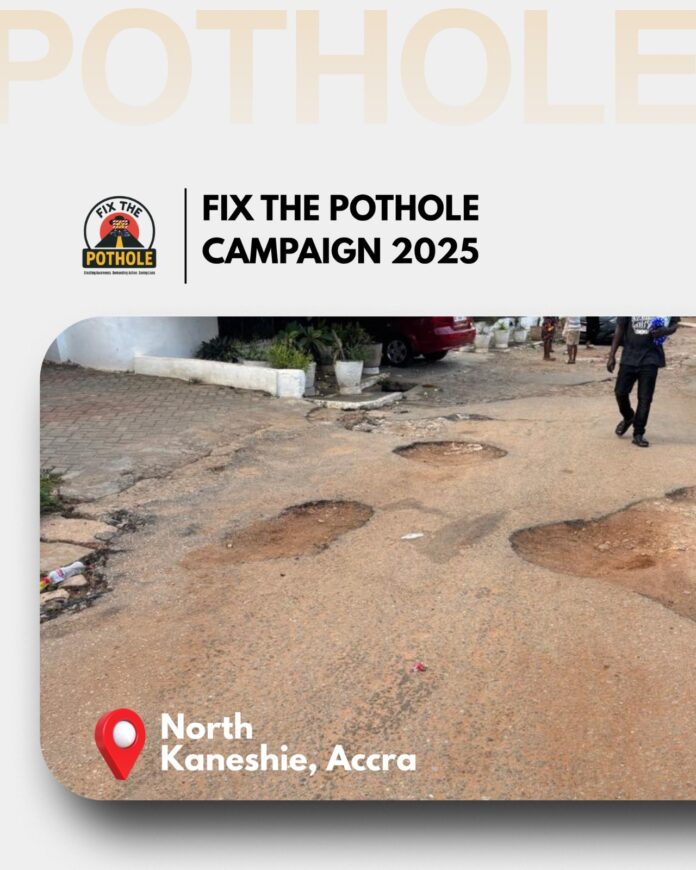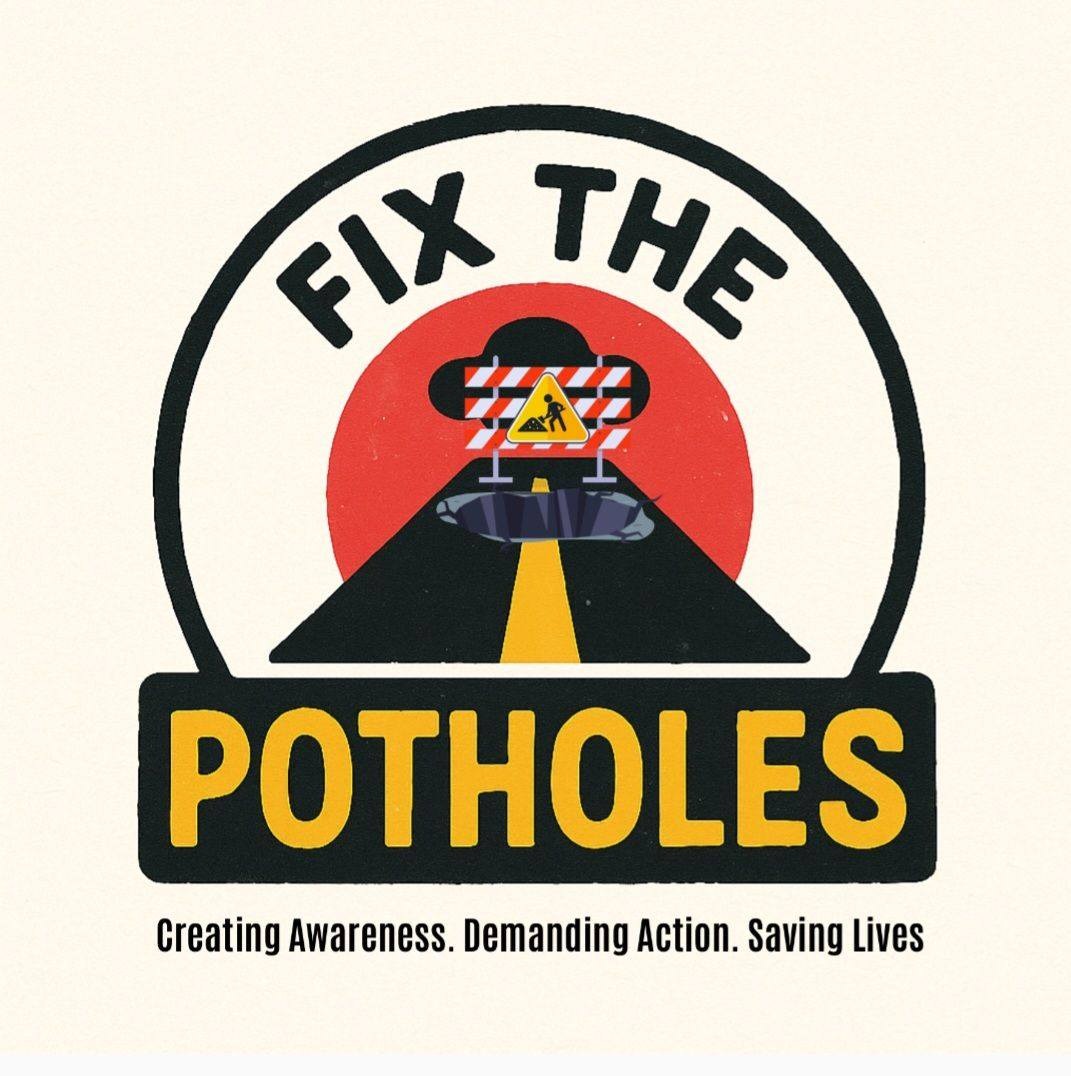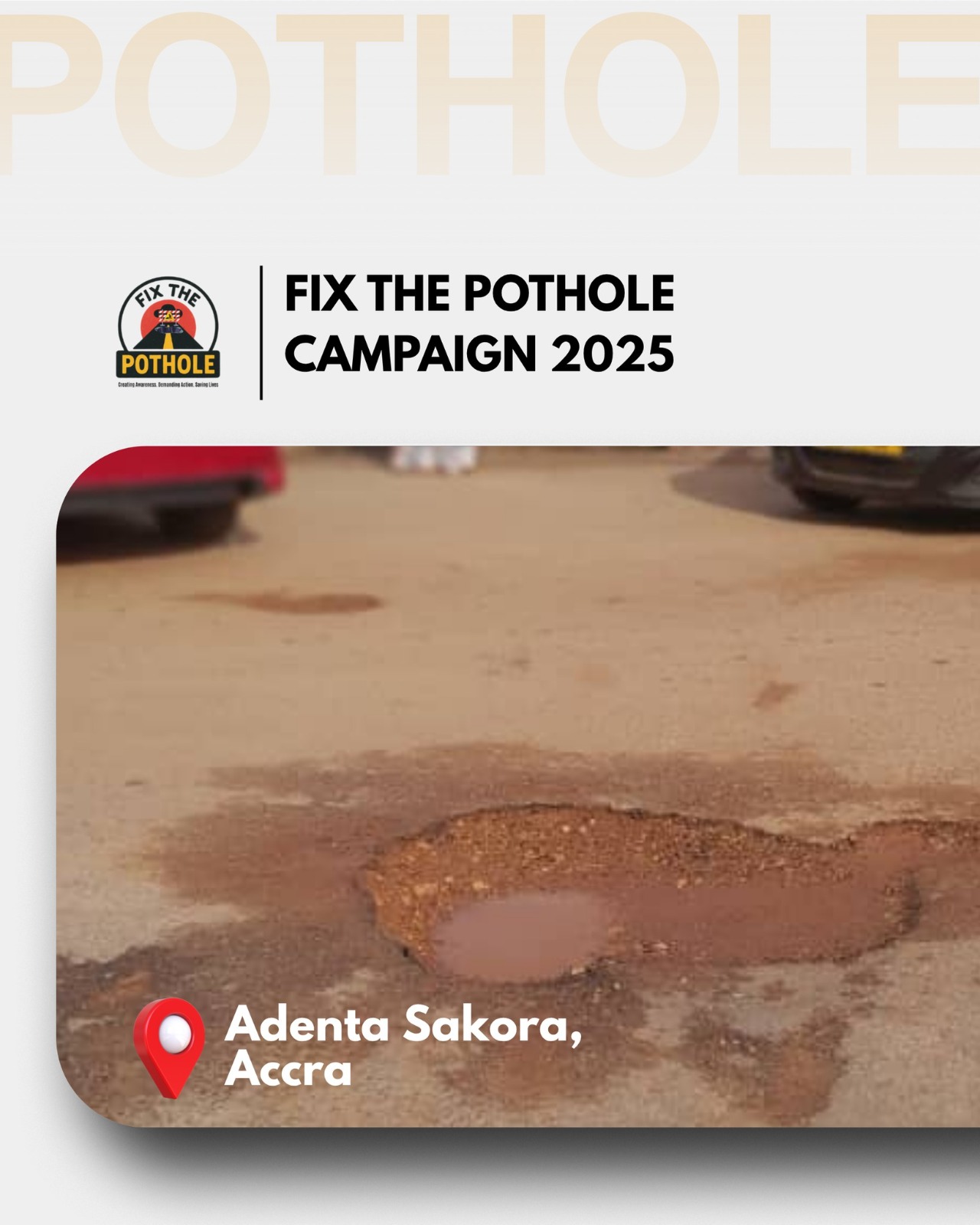It wasn’t just the pothole. It was the swerve, the crash, the blood, and the silence that followed.
Across Ghana, roads are fast becoming battlegrounds where innocent lives are lost—not to armed robbers or reckless drivers alone, but to the growing, gaping menace of potholes. Now, a determined group of master’s students from the University of Media, Arts and Communication (UNIMAC) have had enough. They’re not waiting for politicians. They’re not waiting for engineers. They’re not even waiting for graduation. They’re acting now.
Driven by heartbreak, frustration, and a fierce sense of civic duty, the students—offering Development Communication—have launched “Fix the Potholes,” a national social change campaign demanding urgent action to repair Ghana’s deteriorating roads. But this isn’t just a campaign about asphalt and bitumen. It’s about saving lives.
A Nation in Pain, A People in Peril
“This campaign is not just about potholes. It’s about the people who die because of them,” said Aku, one of the campaign leads, her voice resolute during a televised interview.
“It’s about the taxi driver who lost his source of income because he hit a pothole and crashed. It’s about the woman who had a miscarriage on a bumpy ride to the hospital. It’s about the child whose father never made it home.”
This haunting reality plays out daily across Ghana. Potholes litter major highways and inner-city roads alike, causing avoidable crashes, injuries, and deaths. According to the National Road Safety Authority, thousands perish each year in road accidents, with poor road conditions consistently ranked among the top causes.
From Classrooms to Campaign Frontlines
These UNIMAC students have transformed their development communication coursework into a life-saving mission. Applying participatory communication models and citizen journalism tactics, they are building a nationwide digital movement that cuts across regions, class, and age.
“We’re not just talking. We are gathering real evidence from real people in communities across Ghana,” explained Winifred, the group’s content strategist.
“People send us videos and photos of potholes in their towns—Takoradi, Oti Region, Accra, Ashanti—and we publish them on social media to pressure the authorities. We are using our platforms to elevate the voices that usually go unheard.”
With active pages on X (formerly Twitter), Facebook, and TikTok, the campaign is mobilizing Ghanaians to document and share potholes and related incidents. It’s citizen advocacy at its finest—raw, visual, and urgent.
A Dangerous Mission with High Stakes
Documenting the potholes is not without danger.
“We’ve had close calls,” said Winifred. “Sometimes you’re on the road filming, and a car nearly knocks you down. Other times, you try to interview drivers who are reluctant or too busy to talk. It’s not easy, but it’s necessary.”
Despite the risks, the team persists. They’ve also begun engaging commercial drivers, rural residents, and even persons with disabilities—ensuring the campaign remains inclusive.
“This is not just a city issue,” said Edmond, another team member. “Whether you drive a trotro, a private saloon car, or you’re a pedestrian—potholes affect us all.”
Fixing More Than Roads
The ultimate goal, they say, is not merely cosmetic road fixes—it’s systemic change. The group wants sustained action from municipal assemblies, urban roads departments, and national policymakers.
“We want this campaign to trigger real budgeting, real planning, and real repairs,” Aku insisted. “We want authorities to stop turning a blind eye to a crisis that’s costing lives every single day.”
The students are also partnering with media personalities and influencers to amplify their reach. Some Ghanaian journalists have already begun sharing their own stories of near-fatal pothole experiences.
How You Can Join the Fight
Ghanaians across the country are being called to take action. The process is simple:
-
Take a picture or video of a pothole in your area.
-
Share it on social media.
-
Tag @FixThePotholes on X, Facebook, or TikTok.
-
Use hashtags like #FixThePotholesNow and #RoadsAreLives.
“We may be students, but we are also citizens. And in a democracy, citizens have power,” said Edmond. “Let’s use it before another life is lost to something as preventable as a pothole.”
A Movement for Life, A Lesson in Courage
What began as a university project has become a national lifeline. These students are proving that meaningful change doesn’t always start in Parliament—it can start in a classroom, on a phone, in a tweet. They are not just calling out authorities. They are calling in a nation.
In a country where potholes have become part of the scenery, their message is clear:
“We see the holes. We count the bodies. And we will not be silent anymore.”
Source: Ivy Priscilla Setordjie


